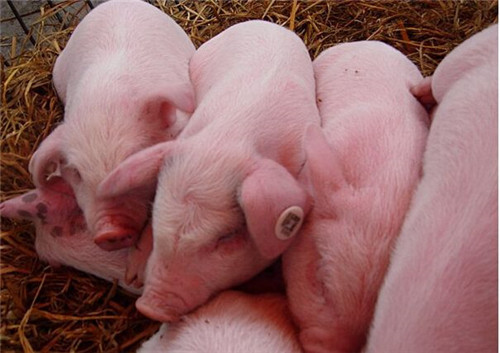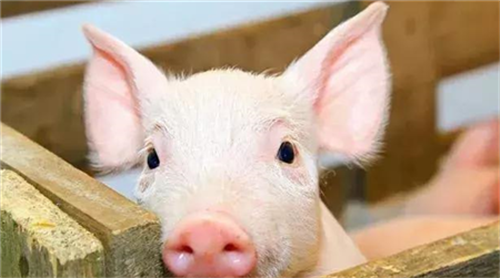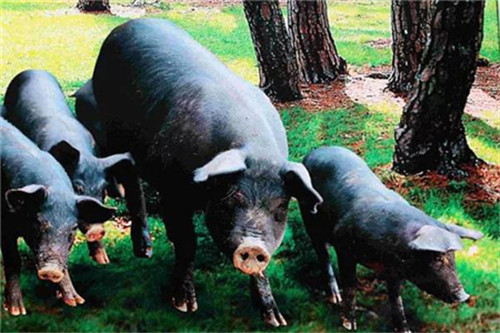The enclosure is not clean, the pig is very dirty, will affect the health of the pig?
In the process of fattening and raising, it is often encountered that the enclosure is not clean and the pig is very dirty, which not only affects the living environment of the pig, but also directly affects the health of the pig. Seriously, it will also deal a heavy blow to the economic benefits of the farm. Is there any effective way to solve this situation? Yes, in the process of raising pigs in Dahan, three-point positioning is the most important skill we should learn to operate. Mastering and flexibly using it can reduce pig health problems and improve work efficiency.
1. Accept the pig herd according to the diversion of pigs in the nursery. After 28-42 days in the nursery, the body weight reached 18-27 kg and transferred to the growth and fattening house.
2. Implement batch management. The growing and fattening house carries out batch management according to the transferred pigs, so that the management of feed and veterinary drugs can be carried out thoroughly.
3. Grouping. After the pigs are transferred to the fattening house, they are divided into groups and pens according to their strength and size, and each pig is divided into 0.8 and 1.2 square meters according to the pig weight stage. if conditions permit, 1-2 fields should be reserved in each unit. it is used to separate and raise weak and diseased pigs in the process of pig feeding. When grouping and grouping, in order to reduce the stress caused by pig bites, we should abide by the principles of "staying weak but not strong", "dismantling more, not dismantling less", and "night and day are not together". Pigs can be sprayed with flavored liquid (such as alcohol or Lysol) to remove odor differences, and breeders should pay more attention after adjusting the fence.
One is to classify groups according to variety, sex, strength and weakness.
The second is to stay weak but not strong: leave the weaker pigs in the original circle and the stronger pigs out.
The third is to dismantle more but not less: leave the few pigs in the original circle and merge the ones with more heads into the herds with fewer heads.
Fourth, the night is not the same as the day: the pigs that are prepared and herded are sprayed with drugs or feces with the same smell, making it difficult to distinguish the smell from each other and gregarious at night.

Fifth, the new column of the same tune: the two groups of pigs with similar body weight, physical condition, food intake, equal number of pigs and equal strength will be transferred to the new pig pen at the same time.
Sixth, hunger and satiety: pigs are separated when they are hungry and fed immediately after the group, so as to ensure that the pigs have enough to eat and drink, so as to achieve the goal of mutual non-aggression. Conditional pig farms can buy some welfare toys, such as plastic bottles, chains, waste tires and so on.
4. Train pigs. Train pigs to develop the habit of positioning at three o'clock (eating and drinking, sleeping, excreting).
Three positioning skills of eating and drinking, sleeping and excretion:
(1) Water positioning: put some water in the place where the pig pulls feces and urine, or even occupy most of the enclosure area, forcing the pig to a very small area, and gradually scatter the water after the pig is fixed to lie down.
(2) fecal location: in the place where pigs should defecate and urinate, first put some dirt (pig manure, etc.). Because pigs like to be clean, they will walk there on their own initiative.
(3) Toy positioning: pigs have the habit of playing with nose arches. They can put iron door frames or plastic bags for pigs to play in the place where they defecate. Pigs generally like to defecate here to achieve the purpose of positioning.
(4) Feed positioning: sprinkle some material in the place where the pig is prepared to lie down. The pig usually does not shit or pee on the feed, but will lie down on it.
(5) Plank positioning: the breeding house is mostly cement floor, sometimes the ground is still wet, so the pig will feel colder; lay a 1X2m2 board for the pig where it needs to be located, and the pigsty will not pee on it.
(6) Corner positioning: newly transferred pigs generally like to lie in shelter, so corners and walls become places for pigs to lie; so newly transferred pigs need us to design walls or corners for them; if you need pigs to lie near the door, you have to block a plank or other objects at the door, and the pig will take the initiative to lie down.
(7) Night positioning: in the evening, the breeder takes some time to pick up the pigs lying in the wrong place and drive them to the area where they should lie down until they sleep well.
5. Clean the feces twice a day, keep it clean, change the disinfectant in the door disinfection pool every 3 days, take pig spray disinfection twice a week, and wash the pig pen once a day in summer.
6. pay attention to observe the health status of pigs: defecation, eating, breathing, find sick pigs, timely isolation nursing and treatment, serious or unknown reported. Register the dead pigs and fill in the relevant forms. (source: pig raising Yidan Tong)
- Prev

What is the cause of pore bleeding after the onset of pig disease?
What is the cause of pore bleeding after the onset of pig disease?
- Next

How to carry out correct health care and anti-inflammation in sows after delivery?
How to carry out correct health care and anti-inflammation in sows after delivery?
Related
- On the eggshell is a badge full of pride. British Poultry Egg Market and Consumer observation
- British study: 72% of Britons are willing to buy native eggs raised by insects
- Guidelines for friendly egg production revised the increase of space in chicken sheds can not be forced to change feathers and lay eggs.
- Risk of delay in customs clearance Australia suspends lobster exports to China
- Pig semen-the Vector of virus Transmission (4)
- Pig semen-the Vector of virus Transmission (3)
- Five common causes of difficult control of classical swine fever in clinic and their countermeasures
- Foot-and-mouth disease is the most effective way to prevent it!
- PED is the number one killer of piglets and has to be guarded against in autumn and winter.
- What is "yellow fat pig"? Have you ever heard the pig collector talk about "yellow fat pig"?

